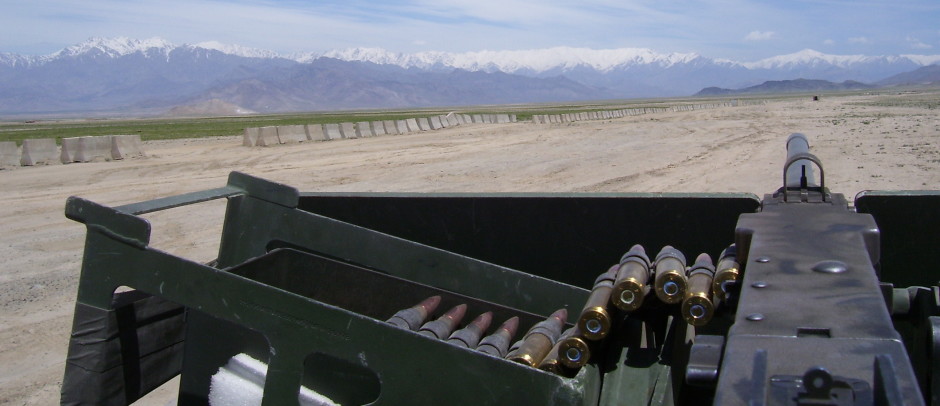………..for your own protection.
All too often you hear people say, “You don’t need a gun to protect yourself, just call the police; it’s their job to protect you.” Actually, the Supreme Court and numerous Federal and State courts have already ruled that “It is well-settled fact of American law that the police have no legal duty to protect any individual citizen from crime”. This ruling would imply that YOU are responsible for your own protection as well as your family. But while one branch of the government confirms that you are responsible for your own protection, another branch is trying to limit your ability to own an instrument of protection. How can that be constitutional? Shouldn’t the opposite be true? The Affordable Healthcare Act mandates that you have Health Insurance to protect your health and prevent financial ruin. Shouldn’t the government also mandate that you have the means to protect yourself and your family?
What would the effect be on crime if the head of every household legally allowed to possess a firearm had one? Would a criminal really kick down a door for a home invasion knowing the homeowner was armed? In England where owning a firearm is nearly impossible, 59% of attempted burglaries involved an occupied home. In Canada, which has very strict gun laws, 44% of burglaries were against occupied homes. In (most of) the US, where firearms ownership is a Constitutional Right, only 13% of U.S. residential burglaries are attempted against occupied homes. What would that rate be if every homeowner was armed?
In 1982, Kennesaw, Georgia’s passed an ordinance requiring heads of households (with certain exceptions) to keep at least one firearm in their homes. In the first 15 years after the law was passed, there were only three murders [two with knives (1984 and 1987) and one with a firearm (1997)]. In 1982, crimes against persons plummeted 74 percent compared to 1981, and fell another 45 percent in 1983 compared to 1982.
The towns’ own police chief has stated that the law is not enforced and actual gun ownership is around fifty percent. Yet its effect on crime is undeniable.
Additional reading:
Supreme Court Justices Rule Police Do Not Have Constitutional Duty to Protect Someone
Court Cases:
(1) Wisconsin Supreme Court, Barillari v. City of Milwaukee, 533 N.W.2d 759 (1995). Quote from ruling: “The majority concludes that in this case the detectives’ promises to arrest the alleged assailant and to protect the victim do not subject the law enforcement officers to liability.” Read the case.
(2) US District Court, Bowers v. DeVito, 686 F.2d 616 (1982). Quote from ruling: “On these facts, the Court held that appellant’s decedent’s death is too remote a consequence of the parole officers’ action to hold them responsible under the federal civil rights law.” Read the case.
(3) DeShaney v. Winnebago County Department of Social Services, 489 U.S. 189 (1989). Quote from ruling: “Nothing requires the State to protect the life, liberty, and property of its citizens against invasion by private actors.” Read the case.
(4) Appeals Court of Massachusetts, Ford v. Town of Grafton, 693 N.E.2d 1047 (M 1998). Quote from ruling: “Although there is no constitutional right to police protection, the State may not, of course, selectively deny its protective services to certain disfavored minorities without violating the Equal Protection Clause.” Read the case.
(5) US Court of Appeals, District of Columbia, Warren v. District of Columbia, 444 A.2d 1 (1981). Quote from ruling: “…a government and its agencies are under no general duty to provide public services, such as police protection, to any particular individual citizen…” Read the case.
(6) New York Supreme Court, Appellate Division, Riss v. New York, 22 N.Y.2d 579,293 N.Y.S.2d 897, 240 N.E.2d 806 (1958). Quote from ruling: “What makes the City’s position particularly difficult to understand is that, in conformity to the dictates of the law, Linda did not carry any weapon for self-defense. Thus by a rather bitter irony she was required to rely for protection on the City of NY which now denies all responsibility to her.” Read the case.
(7) North Carolina Court of Appeals, Lynch v. N.C. Dept. of Justice, 376 S.E. 2nd 247 (1989) Quote from ruling: “Law enforcement agencies and personnel have no duty to protect individuals from the criminal acts of others; instead their duty is to preserve the peace and arrest law breakers for the protection of the general public.” Read the case.
